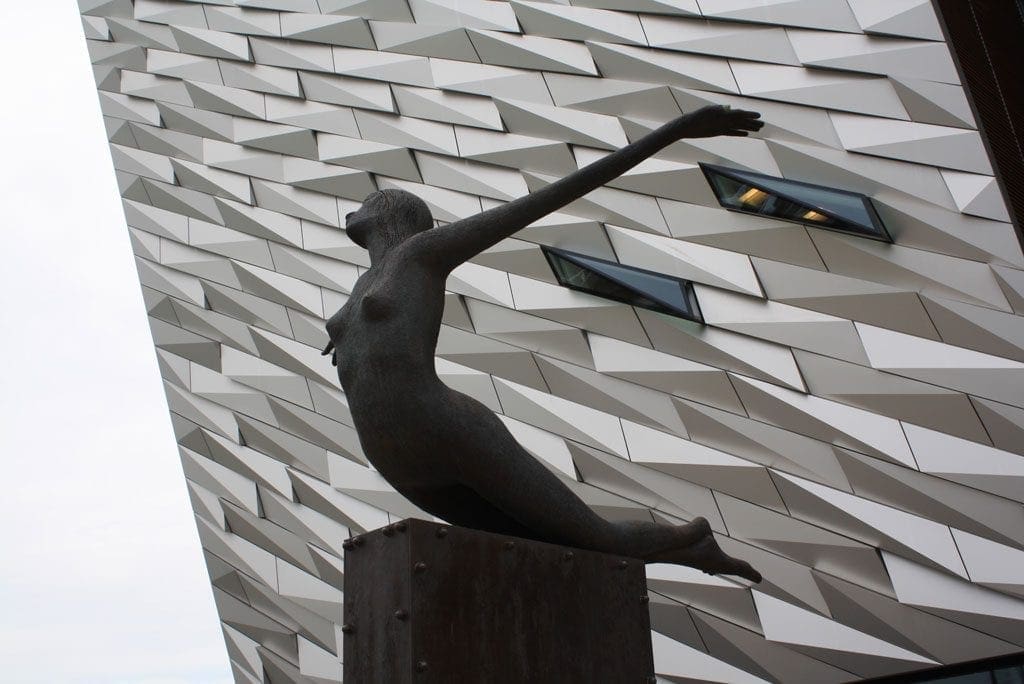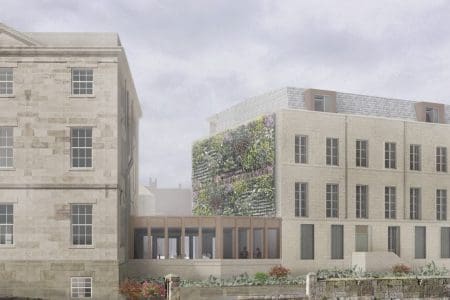National Maritime Museum Cornwall will present a major new exhibition, Titanic Stories, which will examine the stories of the Titanic’s momentous sinking on 15 April 1912, re-appraising many of the myths, controversies and assumptions that still linger around one of the most well-known historic events of the 20th century. It will be on display at the exhibition galleries at the Museum in Falmouth, Cornwall, from 8 March 2018 until 7 January 2019.
Working in collaboration with private collectors from overseas and national museums in the UK, ‘Titanic Stories’ presents rare and never-seen-before objects and items, as well as retelling the personal stories of many of the survivors, victims and descendants of the Titanic disaster, including those from Cornwall. The exhibition will offer new contextual information around the iconic sinking and what happened next.
Did the crew respond with a ‘women and children first’ rescue operation? How many were actually on the ship when it sank? Did the ship’s band really play ‘Nearer My God To Thee’ to their watery end? Could more have been saved? Was there really a second ship nearby?
 Focusing on the remarkably rapid commercialisation of the disaster, the exhibition will also offer an in-depth exploration of the tragic event’s quick rise in status to one of the most globally talked about and commodified events in history, from how the news initially broke and was reported by international media (a subject of early ‘fake news’ stories), to the first souvenir postcards produced days after the sinking, the books written and film adaptations made within weeks, and the commemorative music and memorials, as well as more contemporary ephemera and artefacts following the wreck’s discovery in September 1985.
Focusing on the remarkably rapid commercialisation of the disaster, the exhibition will also offer an in-depth exploration of the tragic event’s quick rise in status to one of the most globally talked about and commodified events in history, from how the news initially broke and was reported by international media (a subject of early ‘fake news’ stories), to the first souvenir postcards produced days after the sinking, the books written and film adaptations made within weeks, and the commemorative music and memorials, as well as more contemporary ephemera and artefacts following the wreck’s discovery in September 1985.
International cinema adaptations of the Titanic story will be on display, from a Nazi propaganda film, to the award-winning A Night to Remember, each represented in the exhibition by their original film posters, production stills and more. Iconic items from James Cameron’s 1997 blockbuster will also feature, including one of Kate Winslet’s celebrated costumes and other props and pieces from the epic production.
Alongside documentary and personal photographs, letters, newspaper cuttings, compelling items such as a handkerchief waved from a lifeboat and a First-Class passenger list found in the pocket of a victim, will explore the intimate items left behind from the historic voyage.
In addition to the many historic objects, the National Maritime Museum Cornwall will also commission a number of large-scale new installation pieces which will go on display in its galleries, including an exact, life-size replica of Lifeboat 13, made by specialist boat builders in Falmouth (currently being constructed, in a workshop gallery in the museum, on public view) as well as working with a Cornish-based artist to create a visually-stunning representation of the iceberg suspended over the lifeboat. Created in partnership with members of the local community, the sculpture will be formed from 2208 monkey’s fist knots, each representing a survivor or victim of the tragedy.
The exhibition also contextualises the Titanic’s sailing as a migration story, full of passengers leaving their homes to start a new life. It will take this theme and explore resonances with current migration stories, including a small commissioned series of photographic portraits, telling the stories of immigrants, who have journeyed to Cornwall across seas, to begin a new life.
Guest Co-Curator Eric Kentley stated, “Curator Claes-Göran Wetterholm and I met on the 1994 expedition to the Titanic wreck site, retrieving artefacts from the seabed, two and a half miles underwater. What fascinates us both is how the memory of this ship – and this ship alone – has become so engrained in our culture, how myths have been built around it, and how each generation retells the story. Our exhibition examines how, through a combination of commerce and myth-making, a tragedy was cleverly transformed into a triumph”.
Richard Doughty, Director of National Maritime Museum Cornwall stated, “The National Maritime Museum Cornwall is best known for its collection of small boats, so why are we telling a story about what was in 1912 the world’s largest ship? It’s because everything we know, or think we know, comes from the 706 people who left the ship in the lifeboats. Titanic Stories is a small boat story.
Following on from our previous exhibitions such as Viking Voyagers, and Captain Bligh we take a globally important story, and explore the Cornwall context, in this case the Cornish passengers and crew, and we continue to grow our reputation as a Museum that brings ancient artefacts from national and international collections, the like of which have never been seen in Cornwall and rarely seen outside of London and the UK’s other metropolitan centres before.”
National Maritime Museum Cornwall, Discovery Quay, Falmouth, TR11 3QY. Open daily, 10am – 5pm. Tickets and information: nmmc.co.uk / 01326 313388



